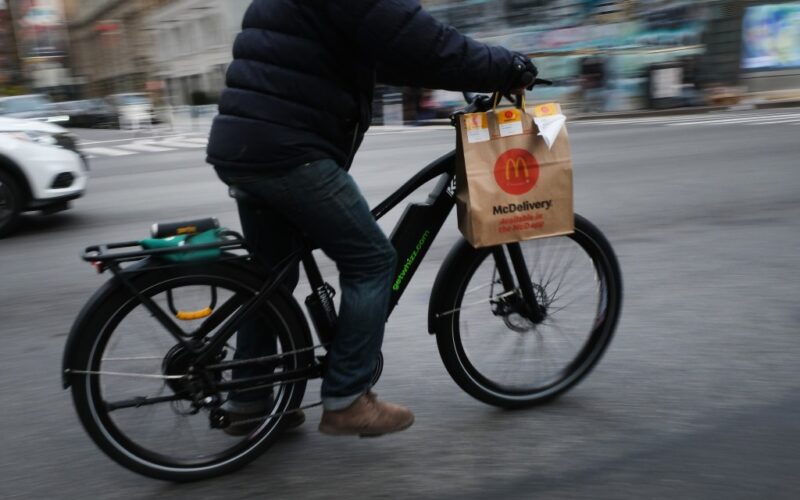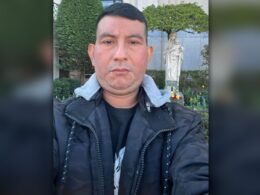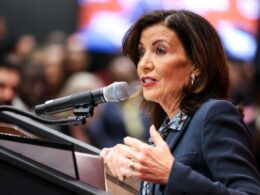New Yorkers are tough — but the Trump administration is stretching our resilience. From slashing federal oversight to gutting consumer protections, Washington has left working families vulnerable to corporate greed and exploitation. In the face of this, New York City must lead. And the truth is, we already have the tools — we just need the political will to use them.
This past year, the City Council took important steps to expand workers’ rights, including new protections for app-based delivery workers. These victories are the result of years of organizing by workers and advocates who refused to accept exploitation as business as usual. But policy wins on paper are only as strong as our ability to enforce them. We need to follow through by investing in the city agencies that make these protections real in people’s daily lives.
The Department of Consumer and Worker Protection (DCWP) has a long track record of standing up for working people and ensuring that businesses play by the rules. As the former commissioner of DCWP and as an Assembly member who has spent years advancing pro-worker legislation, we both know firsthand that enforcement matters.
We need to double DCWP’s capacity — more investigators, inspectors, and attorneys — so it can build on its success in order to take on wage theft, corporate abuse, and unfair labor practices with the urgency and scale this moment demands. Lorelei led DCWP during a period when New Yorkers needed it most, expanding paid safe and sick leave and launching protections for workers in unstable jobs.
Harvey, as a tenant member of the Rent Guidelines Board, successfully fought for the first and second rent freezes in the board’s history, was a critical leader in numerous legislative efforts to expand tenants rights and standing up to powerful real estate interests. In the state Assembly, he’s passed laws to shield gig workers from retaliation, strengthen housing court protections, and expand legal representation for low-income families.
What unites our work is a belief in the power of government to be a force for equity — when it’s accountable, inclusive, and people-driven. That means using every lever of city power to protect the public good.
The Department of Investigation should scrutinize city contractors for unfair labor practices. The corporation counsel must be aggressive in going after companies that cheat city laws. We need to investigate whether our city’s banking relationships are propping up financial institutions that redline or exploit low-income communities. We need to rebuild the city Commission on Human Rights to protect us from discrimination. Our budget should reflect our values.
We need a deputy mayor for economic justice with a mandate to align policy across all these agencies. That position should be tasked with embedding economic justice into every corner of government, from workforce development to small business regulation to consumer protection. Coordination, accountability, and vision are how we get results.
This isn’t about punishing business — it’s about lifting the floor for everyone and leveling the playing field for honest small businesses. The vast majority of our city’s entrepreneurs want to do right by their workers and communities. But they can’t compete with corporations that exploit loopholes and flout the law. We must reward businesses that follow the rules, pay fair wages, and offer benefits, and strategically focus enforcement on the bad actors who don’t.
As Washington walks away from its responsibilities, it’s up to us to step in. That includes advocating for stronger state laws in Albany and fighting for local tools like expanded enforcement authority and municipal banking options. It also means protecting immigrant communities from exploitation, ensuring language access, and tailoring outreach so that every worker knows their rights — and how to enforce them.
New Yorkers are demanding bold leadership that centers working people and prioritizes community over corporate profit. The future of our city depends on whether we rise to meet this challenge with concrete action and moral clarity.
Economic justice isn’t a slogan. It’s about making government work for everyone — not just the powerful and well-connected. When we invest in that vision and back it up with real resources and accountability, we can make New York a national model of fairness, opportunity, and shared prosperity.
Epstein is an Assembly member representing the 74th district in Manhattan and the Democratic nominee for Council district 2. Salas is a leadership in government fellow with the Open Society Foundations, former supervision director of the U.S. Consumer Financial Protection Bureau and former DCWP commissioner. This opinion does not reflect the views of these offices.








